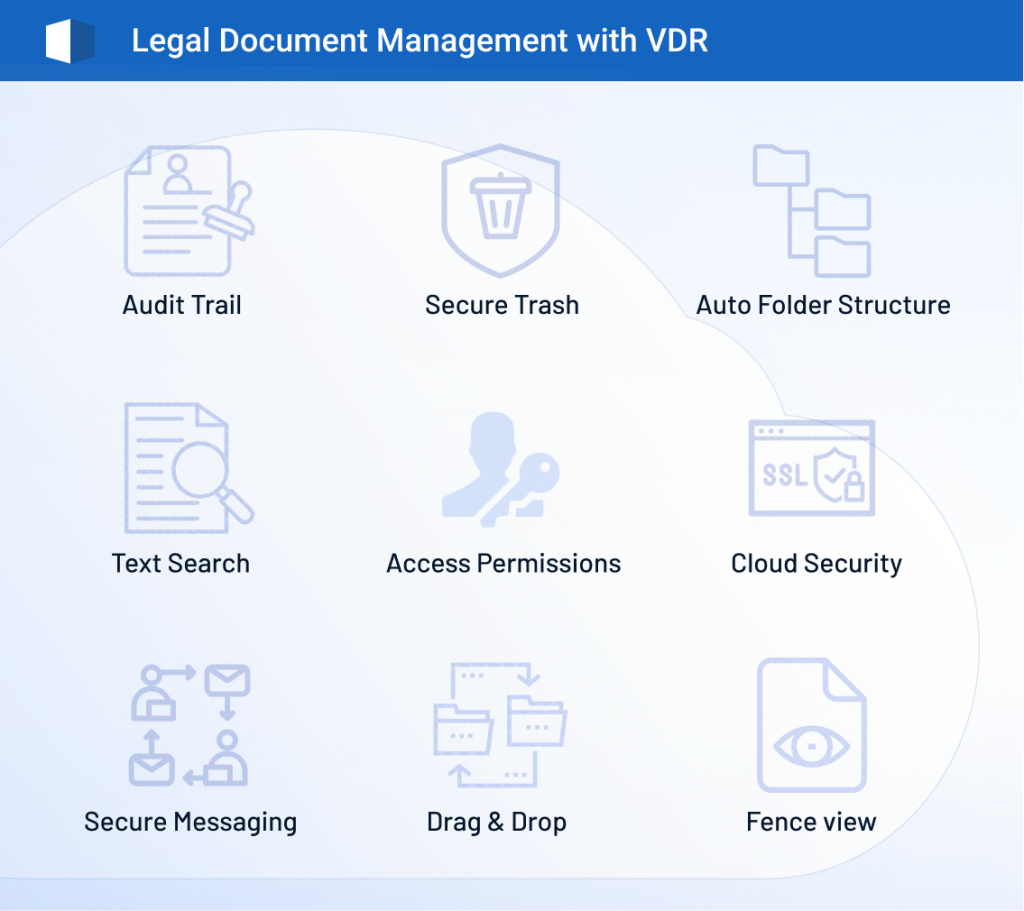Empower legal teams with secure virtual data rooms designed for client confidentiality, litigation, and complex transactions.
Best Choice:
Ideals data room enables law firms to manage sensitive case files and client documents securely. Granular access controls, activity monitoring, and a user-friendly interface help legal teams protect confidentiality while improving workflow efficiency.
Firmex is widely used by law firms for secure legal document sharing. With strong audit trails, customizable permissions, and ease of use, it simplifies collaboration for litigation, M&A, and corporate legal matters.

SecureDocs offers a practical and cost-effective data room for law firms. Flat-rate pricing, fast setup, and reliable security make it ideal for small to mid-size firms handling confidential client or corporate transactions.
Intralinks supports law firms in managing complex, cross-border legal cases and transactions. Advanced compliance tools, AI-powered analytics, and enterprise-grade security ensure sensitive legal data remains protected while facilitating global collaboration.
